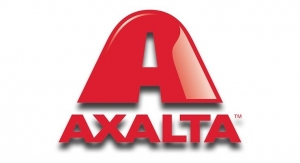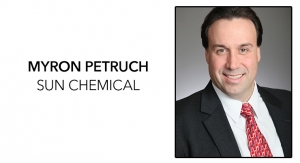Anthony Locicero, Associate Editor02.20.19
On Feb. 13, the New Jersey Paint Council held its legislative session.
The American Coatings Association and the NJPC were represented by the Chemistry Council of New Jersey’s Executive Director Dennis Hart and Ed Waters, director of Government Relations.
“Last year was extremely busy as ACA and NJPC worked to try to pass paint stewardship legislation and ensure that no adverse chemicals management or extended producer responsibility legislation was adopted,” said Heidi K. McAuliffe, Esq., ACA’s VP of Government Affairs. “While the paint stewardship program did not pass, we made considerable progress and are hopeful that a new governor will sign the legislation. The NJPC is also very busy at the regulatory agencies, working on water quality, air quality, site remediation and compliance issues for the coatings industry.”
The NJPC has been trying to get the legislature – S-21815 Beach (D6)/A-4382 Pinkin (D18), which was pocket vetoed by former Gov. Chris Christie – in front of Gov. Phil Murphy, Waters said.
Passage would require paint producers to implement or participate in a paint stewardship program.
“The Legislature further finds and declares that the producers of architectural paint are best able to assume responsibility for the development and implement of a cost-effective paint stewardship program that will provide fiscal relief to local governments by reducing the volumes of leftover paint, promoting its reuse, and providing for the collection, transportation, and processing of such paint,” part of the act reads.
According to Waters, Bergen County could potentially save $250,000 through paint recycling.
Some municipalities “treat paint as solid waste,” he noted, adding it is a problem that “companies are not understanding.”
Waters also discussed updates on other legislation, including A-4014 (Lopez D19)/S-3130, which is a bill that prohibits the sale of paint or coating removal products that contain methylene chloride.
Waters relayed a story about a homeowner attempting to strip paint off of a bathtub in a closed-in area.
According to the director of Government Relations, this person breathed in the methylene chloride and died.
There is no homeowner use currently, but the bill is moving forward with a contractor exemption, he said.
The NJPC sent a letter to Gov. Murphy opposing a bill authorizing municipalities, counties and certain authorities to establish stormwater utilities – aka a “rain tax” – per Waters.
“Under the bill, a county or municipality may, by resolution or ordinance, as appropriate, establish a stormwater utility for the purposes of acquiring, constructing, improving, maintaining, and operating a stormwater management system,” the bill reads. “The county or municipality may establish a stormwater utility as a new department within the county or municipality, or as an operation of an existing department having responsibility and control over a stormwater management system.”
Sacha Kathuria, ACA’s newest counsel in Government Affairs, was also in attendance.
Regarding PaintCare, she said the ACA testified before the Assembly Environment and Solid Waste Committee in November and the Senate Environment and Energy Committee in December with the bill passing both.
The ACA expects to testify before the Assembly Appropriations Committee and Senate Budget Appropriates Committee “in the near future,” according to Kathuria.
The legislation was introduced in the NY Assembly on Jan. 15, 2019. The Senate passed the bill unanimously last year but it was not called for a vote in the Assembly, Kathuria noted.
Bills have also been introduced in Massachusetts and Washington, with an eye on getting it before the government in Maryland, New Hampshire, New Mexico, Missouri, Wisconsin and Nebraska, Kathuria said.
While Maryland was “receptive,” the bill was not introduced because of a recent election, she said. The bill will likely be introduced next year.
It could become a priority in Missouri with new politicians in office, Kathuria said, adding that Nebraska officials contacted the ACA and are “very much interested.”
The bill could be introduced in New Hampshire in 2020, she said.
The American Coatings Association and the NJPC were represented by the Chemistry Council of New Jersey’s Executive Director Dennis Hart and Ed Waters, director of Government Relations.
“Last year was extremely busy as ACA and NJPC worked to try to pass paint stewardship legislation and ensure that no adverse chemicals management or extended producer responsibility legislation was adopted,” said Heidi K. McAuliffe, Esq., ACA’s VP of Government Affairs. “While the paint stewardship program did not pass, we made considerable progress and are hopeful that a new governor will sign the legislation. The NJPC is also very busy at the regulatory agencies, working on water quality, air quality, site remediation and compliance issues for the coatings industry.”
The NJPC has been trying to get the legislature – S-21815 Beach (D6)/A-4382 Pinkin (D18), which was pocket vetoed by former Gov. Chris Christie – in front of Gov. Phil Murphy, Waters said.
Passage would require paint producers to implement or participate in a paint stewardship program.
“The Legislature further finds and declares that the producers of architectural paint are best able to assume responsibility for the development and implement of a cost-effective paint stewardship program that will provide fiscal relief to local governments by reducing the volumes of leftover paint, promoting its reuse, and providing for the collection, transportation, and processing of such paint,” part of the act reads.
According to Waters, Bergen County could potentially save $250,000 through paint recycling.
Some municipalities “treat paint as solid waste,” he noted, adding it is a problem that “companies are not understanding.”
Waters also discussed updates on other legislation, including A-4014 (Lopez D19)/S-3130, which is a bill that prohibits the sale of paint or coating removal products that contain methylene chloride.
Waters relayed a story about a homeowner attempting to strip paint off of a bathtub in a closed-in area.
According to the director of Government Relations, this person breathed in the methylene chloride and died.
There is no homeowner use currently, but the bill is moving forward with a contractor exemption, he said.
The NJPC sent a letter to Gov. Murphy opposing a bill authorizing municipalities, counties and certain authorities to establish stormwater utilities – aka a “rain tax” – per Waters.
“Under the bill, a county or municipality may, by resolution or ordinance, as appropriate, establish a stormwater utility for the purposes of acquiring, constructing, improving, maintaining, and operating a stormwater management system,” the bill reads. “The county or municipality may establish a stormwater utility as a new department within the county or municipality, or as an operation of an existing department having responsibility and control over a stormwater management system.”
Sacha Kathuria, ACA’s newest counsel in Government Affairs, was also in attendance.
Regarding PaintCare, she said the ACA testified before the Assembly Environment and Solid Waste Committee in November and the Senate Environment and Energy Committee in December with the bill passing both.
The ACA expects to testify before the Assembly Appropriations Committee and Senate Budget Appropriates Committee “in the near future,” according to Kathuria.
The legislation was introduced in the NY Assembly on Jan. 15, 2019. The Senate passed the bill unanimously last year but it was not called for a vote in the Assembly, Kathuria noted.
Bills have also been introduced in Massachusetts and Washington, with an eye on getting it before the government in Maryland, New Hampshire, New Mexico, Missouri, Wisconsin and Nebraska, Kathuria said.
While Maryland was “receptive,” the bill was not introduced because of a recent election, she said. The bill will likely be introduced next year.
It could become a priority in Missouri with new politicians in office, Kathuria said, adding that Nebraska officials contacted the ACA and are “very much interested.”
The bill could be introduced in New Hampshire in 2020, she said.



























